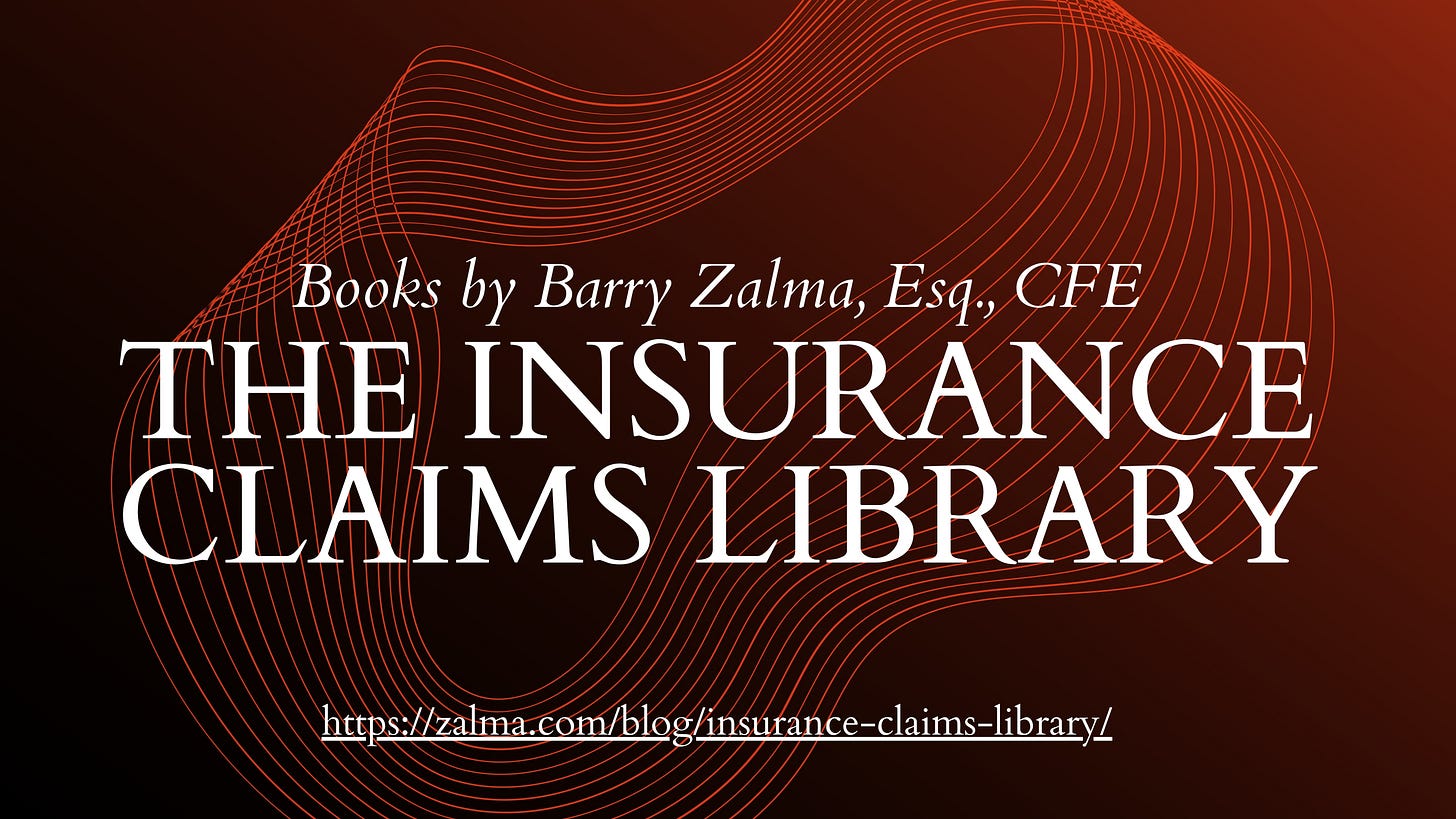Happy Veterans Day to My Fellow Veterans
Read the full article at https://www.linkedin.com/pulse/happy-veterans-day-my-fellow-barry-zalma-esq-cfe-ovpec, shttps://www.linkedin.com/pulse/happy-veterans-day-my-fellow-barry-zalma-esq-cfe-ovpec and at https://zalma.com/blog plus more than 4900 posts.
Post 4929
Vepo Design Corporation and its officers (collectively, “Vepo”) appealed the district court’s grant of summary judgment on their breach of contract and bad faith claims against American Economy Insurance Company (“AEIC”). Vepo’s claims relate to AEIC’s denial of coverage following a fire in a laundromat, known as the “Central Laundromat,” which Vepo was developing.
In Vepo Design Corporation, et al. v. American Economy Insurance Company, No. 23-55634, United States Court of Appeals, Ninth Circuit (November 4, 2024) the issues were resolved serially.
Business Income
The Ninth Circuit reversed the district court’s grant of summary judgment in favor of AEIC on Vepo’s business income claim, which concerns income Vepo contends it would have earned operating the Central Laundromat if the fire had not occurred. AEIC argued that Vepo’s claim for lost income was too speculative given that the Central Laundromat was still under construction and Vepo had not secured additional financing to own and operate it.
Construing the facts in the light most favorable to Vepo as the non-moving party the Ninth Circuit concluded that there is sufficient evidence to create a genuine dispute of material fact and that Vepo’s claim for lost business income is not unduly speculative.
There is evidence that Vepo was contemplating an arrangement under which it would own and operate the Central Laundromat for a period of time before selling it, and that Vepo later engaged in similar arrangements for other laundromats. Vepo, which was experienced in the laundromat industry, also demonstrated that it had a history of securing financing for its laundromat projects and that it intended to refinance the Central Laundromat once a certificate of occupancy was received. Although Vepo had not secured refinancing for the Central Laundromat as of the time of the fire, Vepo’s Principal Owner stated in her declaration and confirmed at her deposition that it was too early to do so in the project timeline. That Vepo had yet to refinance does not render its claim too speculative as a matter of law and its losses are for a jury to decide.
Extra Expense
The Ninth Circuit affirmed the district court’s grant of summary judgment in favor of AEIC for the extra expenses that Vepo allegedly incurred in storing laundry equipment in a warehouse owned by Vepo’s sister company following the fire. While the policy only required the expense to be incurred, not paid, there was insufficient evidence to create a triable issue over whether the expense was incurred at all. No payment changed hands between the two entities, and there is no accounting record showing that Vepo was liable for the storage amount. When the same person signed as representative of both entities, does not create a genuine dispute of material fact.
Lost Profits
The Ninth Circuit concluded that the district court properly granted summary judgment on Vepo’s claim for lost profits on the prospective sale of the laundromat. Even assuming that such a loss would be covered under the policy, the claim fails because the policy limited coverage to losses that occur within one year of the incident. Vepo’s plan called for it to own and operate the Central Laundromat for at least one year after opening, which would place any hypothetical sale more than a year after the pre-opening fire.
Individual Personal Property Claims
The Ninth Circuit affirmed summary judgment for AEIC on the claims by the individual plaintiffs for their own personal property that was allegedly lost in the fire. As the district court correctly found, Vepo did not identify what individual property was lost or its worth. The individual plaintiffs’ claims were too unsupported to create a triable issue.
Bad Faith
The Ninth Circuit partially reversed the district court’s grant of summary judgment on Vepo’s bad faith claim, to the extent of the single insurance claim it allowed to go forward-the business income claim.
The district court may permit any further motions practice on the bad faith claim as it deems appropriate. However, it affirmed the district court’s grant of summary judgment on the bad faith claim insofar as that claim is premised on any of the other breach of contract claims to which AEIC is entitled to judgment as a matter of law.
There is never a claim for breach of the implied duty of good faith and fair dealing if there was no improper denial of coverage under the policy.
ZALMA OPINION
The importance of this case is the reiteration of the law that there can never be a viable tort of bad faith if there is no improper denial of a claim by breach of the insurance contract. If the one cause of action remaining was breached in bad faith and there was no genuine dispute over coverage, that cause can be brought for bad faith damages. The other decisions of the Ninth Circuit were obvious and well reasoned.
(c) 2024 Barry Zalma & ClaimSchool, Inc.
Please tell your friends and colleagues about this blog and the videos and let them subscribe to the blog and the videos.
Subscribe to my substack at https://barryzalma.substack.com/subscribe
Go to X @bzalma; Go to Newsbreak.com https://www.newsbreak.com/@c/1653419?s=01; Go to Barry Zalma videos at Rumble.com at https://rumble.com/account/content?type=all; Go to Barry Zalma on YouTube- https://www.youtube.com/channel/UCysiZklEtxZsSF9DfC0Expg
Go to the Insurance Claims Library – https://lnkd.in/gwEYk



















Share this post